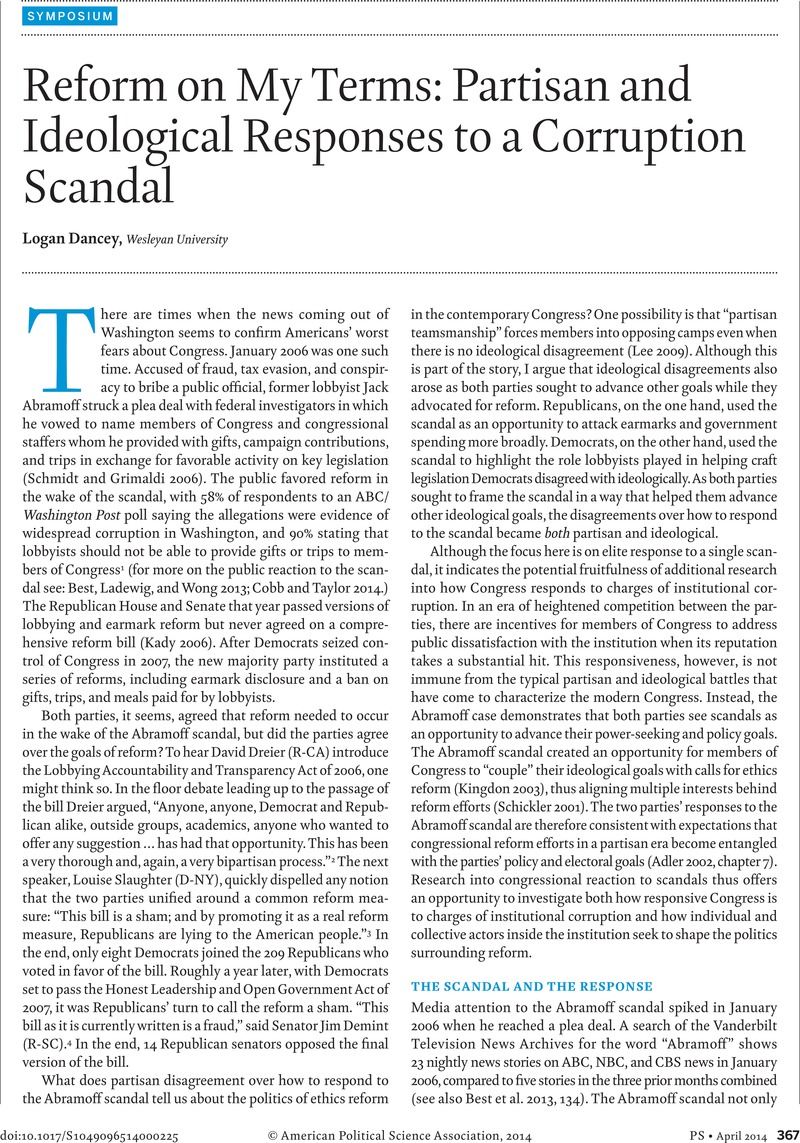Crossref Citations
This article has been cited by the following publications. This list is generated based on data provided by Crossref.
Lelkes, Yphtach
and
Westwood, Sean J.
2017.
The Limits of Partisan Prejudice.
The Journal of Politics,
Vol. 79,
Issue. 2,
p.
485.
Newmark, Adam J.
Vaughan, Shannon K.
and
Pleites‐Hernandez, Giovanny D.
2019.
Surviving Political Scandals: Why Some Transgressions End Political Careers and Others Do Not.
Social Science Quarterly,
Vol. 100,
Issue. 4,
p.
1268.
Paschall, Collin
Sulkin, Tracy
and
Bernhard, William
2020.
The Legislative Consequences of Congressional Scandals.
Political Research Quarterly,
Vol. 73,
Issue. 2,
p.
293.
Năstase, Andreea
2024.
A tale of two cities: regulating lobbying through public and private instruments in Brussels and Washington D.C.
Interest Groups & Advocacy,
Vol. 13,
Issue. 4,
p.
498.



